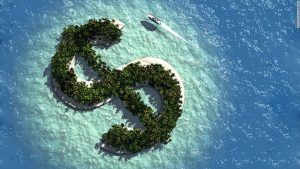What is offshore, onshore and midshore?
 If you have ever created a business on your own, from the zero cycle, then you probably took into account the different possibilities for the place of registration. This usually happens at the place of registration of the founders of a new company. But imagine that you are from different areas, cities or even countries ….
If you have ever created a business on your own, from the zero cycle, then you probably took into account the different possibilities for the place of registration. This usually happens at the place of registration of the founders of a new company. But imagine that you are from different areas, cities or even countries ….
How to choose a specific place of registration, where your business project will be happy, it will feel comfortable, and where is it simply profitable to conduct business?
The questions are by no means idle, but of concern to many entrepreneurs, as well as those who aspire to become such. Let’s figure out what the options are.
You can register in the country where your creative (production) activities will be conducted. It seems to be right, because you are creating and creating your core value here, but what if your clients are in another country? You sell your products / services there. And if this is not happening in one country, but in many? To register in each country? But everywhere there are various conditions for doing business.
There is something to ponder, right? Especially in this age of the Internet and the dominance of global companies, which every ambitious entrepreneur dreams of founding and owning (secretly).
Corporate global law has long been asked similar questions. The main contradiction is that the interests of the state and business are not identical in everything. Moreover, in some positions they are radically different.
The solution to this contradiction lies in finding a balance of these very interests of the state and entrepreneurship. This balance rests on the one hand on economic profit and innovation that creates a private business, and on the other, on the tax system and the rules of the game for business that the state creates through relevant legislation. The general principle is pretty simple. There will be bad legislation – the business will either leave the country or wither away. It will be friendly – business will flourish along with the state and citizens.
Unfortunately, not all political leaders understand and, most importantly, realize these simple truths. This is used by smaller countries that do not have a long history of levying high tax rates and large fortunes in the country. There is only the opportunity to change their legislation so as to attract entrepreneurial capital to the country.
We pass to the essence of the question. In the world, all countries have their own relations with foreign investors, companies and, in general, with citizens of other states. Somewhere, the arrival of foreign companies investing at least some money in local economies is welcomed and encouraged in every way. And somewhere, foreign capital is considered harmful and must be banned or generally confiscated. But there are still global archetypes.
So, relatively speaking, all countries can be divided into 3 types that differ in relation to international business: offshore, onshore and midshore jurisdictions. Accordingly, companies registered there will be considered: offshore, onshore and midshore. The division is very arbitrary, but politicians and economists from different countries use this in lobbying for their own interests.
The above types of companies differ in how they work, depending on their overall business goals, products and services that they sell.
The decision to register a company in an offshore, onshore or midshore country depends on a comparison of costs, location of the business and other factors such as local culture, availability of labor and material resources, etc.
What is the direct difference between offshore, onshore and midshore companies? What do these terms mean?
For starters, all three types of companies are generally located in different jurisdictions in which companies can register. Each of them has its own characteristics regarding taxation, safekeeping of assets and confidentiality of business owners. Therefore, before choosing a place of registration, it would be very reasonable for each entrepreneur to devote some time to determining which jurisdiction is best suited to his business project in the long term.



